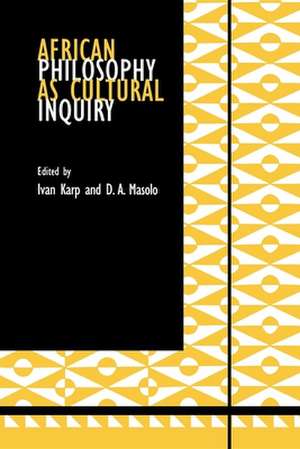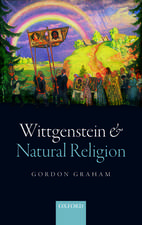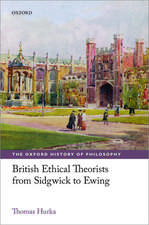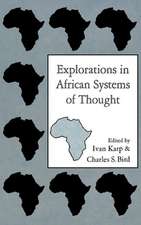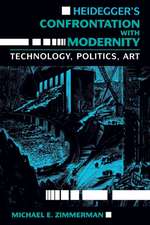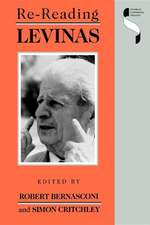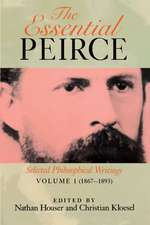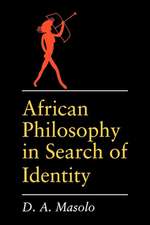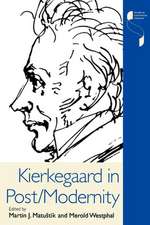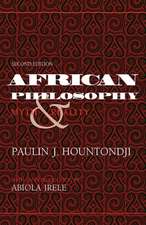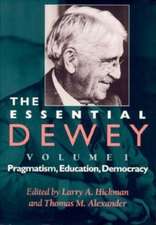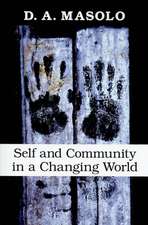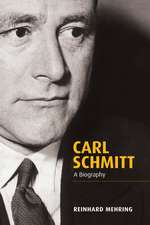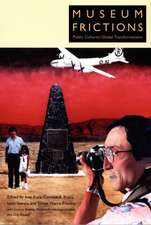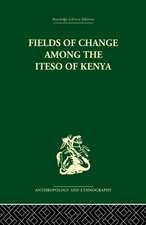African Philosophy as Cultural Inquiry
Autor Ivan Karp, D. A. Masoloen Limba Engleză Paperback – 21 noi 2000
Preț: 165.66 lei
Nou
Puncte Express: 248
Preț estimativ în valută:
31.70€ • 33.18$ • 26.23£
31.70€ • 33.18$ • 26.23£
Carte tipărită la comandă
Livrare economică 07-21 aprilie
Preluare comenzi: 021 569.72.76
Specificații
ISBN-13: 9780253214171
ISBN-10: 0253214173
Pagini: 280
Ilustrații: 1
Dimensiuni: 154 x 232 x 18 mm
Greutate: 0.43 kg
Editura: MH – Indiana University Press
ISBN-10: 0253214173
Pagini: 280
Ilustrații: 1
Dimensiuni: 154 x 232 x 18 mm
Greutate: 0.43 kg
Editura: MH – Indiana University Press
Cuprins
Contents:
Acknowledgments
Introduction: African Philosophy as Cultural Inquiry Ivan Karp and D. A. Masolo
Part 1: Power, Personhood, and Agency
Introduction to Part 1 Ivan Karp and D. A. Masolo
1. Tok Af, Lef Af: A Political Economy of Temne Techniques of Secrecy and Self Rosalind Shaw
2. Islam Among the Humours: Destiny and Agency Among the Swahili David Parkin
3. Some African Conceptions of Person: A Critique Didier N. Kaphagawani
Part 2: Knowledge and Discourse
Introduction to Part 2 Ivan Karp and D. A. Masolo
4. The Play of Deconstruction in the Speech of Africa: The Role of Pakruok and Ngero in Telling Culture in Dholuo Peter S. O. Amuka
5. Personhood and Art: Social Change and Commentary Among the Acoli J. P. Odoch Pido
6. Forging Unions and Negotiating Ambivalence: Personhood and Complex Agency in Okiek Marriage Arrangement Corinne A. Kratz
Part 3: African Discourses on Development
Introduction to Part 3 Ivan Karp and D. A. Masolo
7. Our Problem of Knowledge: Brief Reflections on Knowledge and Development in Africa Kwasi Wiredu
8. The Topic of Change F. Eboussi-Boulaga
9. Cheri Samba's Postcolonial Reinvention of Modernity Bogumil Jewsiewicki
10. Luo Perspectives on Knowledge and Development: Samuel G. Ayany and Paul Mbuya E. S. Atieno-Odhiambo
Contributors
Index
Acknowledgments
Introduction: African Philosophy as Cultural Inquiry Ivan Karp and D. A. Masolo
Part 1: Power, Personhood, and Agency
Introduction to Part 1 Ivan Karp and D. A. Masolo
1. Tok Af, Lef Af: A Political Economy of Temne Techniques of Secrecy and Self Rosalind Shaw
2. Islam Among the Humours: Destiny and Agency Among the Swahili David Parkin
3. Some African Conceptions of Person: A Critique Didier N. Kaphagawani
Part 2: Knowledge and Discourse
Introduction to Part 2 Ivan Karp and D. A. Masolo
4. The Play of Deconstruction in the Speech of Africa: The Role of Pakruok and Ngero in Telling Culture in Dholuo Peter S. O. Amuka
5. Personhood and Art: Social Change and Commentary Among the Acoli J. P. Odoch Pido
6. Forging Unions and Negotiating Ambivalence: Personhood and Complex Agency in Okiek Marriage Arrangement Corinne A. Kratz
Part 3: African Discourses on Development
Introduction to Part 3 Ivan Karp and D. A. Masolo
7. Our Problem of Knowledge: Brief Reflections on Knowledge and Development in Africa Kwasi Wiredu
8. The Topic of Change F. Eboussi-Boulaga
9. Cheri Samba's Postcolonial Reinvention of Modernity Bogumil Jewsiewicki
10. Luo Perspectives on Knowledge and Development: Samuel G. Ayany and Paul Mbuya E. S. Atieno-Odhiambo
Contributors
Index
Recenzii
A conception of philosophy embedded in culture guides this anthology, divided into three categories (personhood, knowledge, and development), exploring issues in postcolonial African cultures. Part 1 has essays on the role secrecy plays in shaping personal identity in Sierra Leone, the function of moral notions of the self in Swahili medical practices in Zanzibar, and the dynamic view of the self exhibited in Chichewa linguistic practice. In part 2, which examines epistemological aspects of discourses in the forms of storytelling and music, and in the representation of arranged marriages, Karp and Masolo point out the deconstructive function of hidden meanings of praise--naming metaphors; Odoch Pido discusses Acoli concepts of the person; and Kratz explains the philosophic significance of gendered representation of shifts in identity and social relations in Okiek arranged marriages. In part 3 (the role of traditional culture in social change and modernization), Wiredu argues for retaining African social ethics to balance technical rationality of industrialization; Eboussi--Boulaga analyzes the term change, using the genetic concept of mutation to establish criteria identifying beneficial and evil mutations; Jewsiewicki reflects on the moral and social commentary in Kinshasa visual artist Cheri Samba; and Atieno--Odhiambo discusses Luo writers Samuel Ayany's and Paul Mbaya's efforts to synthesize Luo and Christian cultures. Recommended for upper--division undergraduate and graduate courses.--T. L. Lott, San Jose State University"Choice" (01/01/2001)
Notă biografică
Descriere
Assesses the direction and impact of African philosophy as well as its future role.
